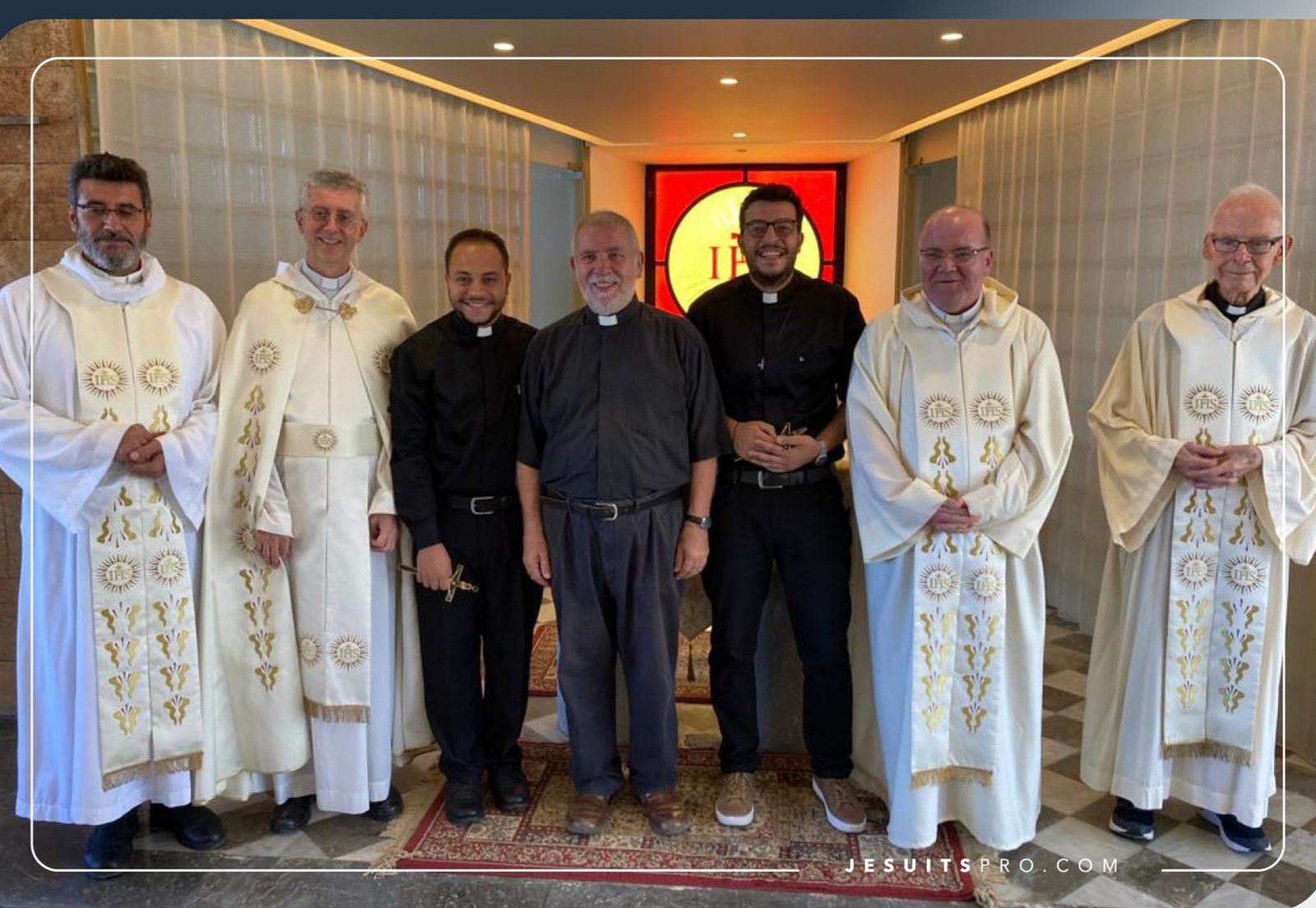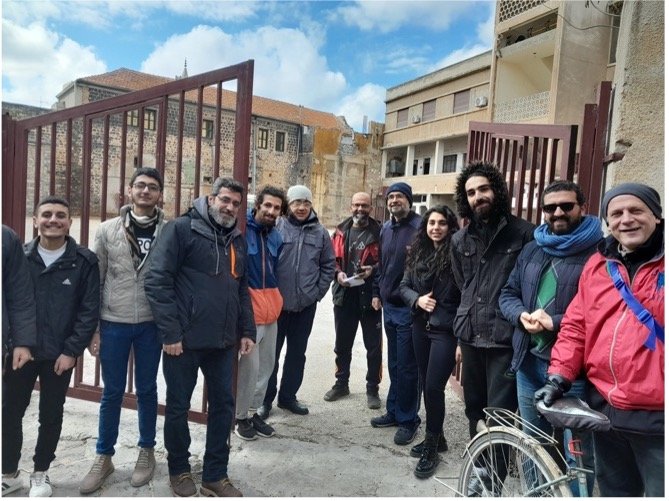
The Jesuits Order
The Jesuit order was founded in the year 1540 by Saint Ignatius of Loyola, and its members are known as Jesuits. The Jesuit order is the largest religious order in the Catholic Church.
It is present in about 120 countries spread across all six continents, with approximately 18,000 Jesuits today, whether they are priests, brothers, or in the stages of formation.
All of them commit to the religious vows of poverty, chastity, and obedience.
Jesuits live in community with other Jesuit companions and are involved in various missions. They are ready to work wherever the need is greatest.
Their communities are founded on celebrating the Eucharist, prayer, their common vision, mission, and spiritual tradition, as well as on sharing faith and life.
Saint Ignatius liked to call them “friends in the Lord.”
Jesuits in the Middle East are committed to various apostolic fields such as schools or universities, centres for spiritual exercises, cultural or social centres, pastoral care, or works serving the poor and most marginalized (such as the Jesuit Refugee Service, JRS).
They can be teachers, spiritual directors, psychologists, doctors, lawyers, actors, guides, social workers…
In short, they can serve in almost any imaginable field. They are committed to serving all social classes, among Christians and non-Christians, in big cities as well as in very remote areas.
Ignatius of Loyola, founder of the Jesuits (1491-1556)
The conversion of Saint Ignatius of Loyola to become a disciple of Christ goes back to an incident: a cannonball wounded his leg as he defended the castle of Pamplona in Spain in the year 1521.
He spent a long and harsh period of recovery. And when he was able to walk again, he became a pilgrim searching for inner peace and the path where the Lord would lead him.
A year later, while contemplating sitting on a hill overlooking the Cardoner River, in Manresa near Barcelona, he had a mystical experience that revealed to him the mystery of the Trinity.
Ignatius felt that all the gifts and graces he had received since then were not equal to what he experienced in that moment. His passion to serve Christ in the midst of daily distractions was rooted in this mystical encounter with the Trinity. We can say that it was his conversion experience.
Starting from that moment, Ignatius of Loyola continued his journey as a pilgrim, but in a different way. After observing and reflecting for about a year and a half on the conflicting “spirits” that were stirring in his heart, he reached a realization of what is from God and what goes against divine thoughts. He began a journey with men and women that he made them participate in “spiritual dialogues” to help them reflect on their experiences and recognize the presence of God’s calls. He went to the Sorbonne University in Paris in 1528 to prepare for this mission formally. There, he succeeded in gathering a group of about ten university students who gathered under his guidance to pray, study, and dedicate themselves to acts of love towards the poor. The first group of “friends in the Lord” decided to stay together to serve the Church. On their way to Rome, Ignatius stopped to pray at La Storta, a small chapel on the side of the road. There, he received a grace that confirmed his desire to be a disciple of Christ: he saw Jesus carrying his cross near the Father, and he heard the Father saying to Jesus, “I want him to serve us”; Jesus then turned to Ignatius and said, “I want you to serve us.” This experience led Ignatius to name the monastic community he would later find, “The Society of Jesus.” Thus, through this vision, Ignatius reaffirmed his desire to align himself with the service of the poor, humble, and suffering Christ.
Ignatian Spirituality
Ignatian spirituality considers life and the entire universe as a gift from God that evokes astonishment and gratitude. It allows the imagination and emotions to participate, while also relying on reason. It searches for what is divine in all things and people, in different cultures, in lessons and research, in dialogue and human experience, especially in the person of Jesus Christ. It acknowledges that evil operates on a personal or collective level, but recognizes that love is stronger than all evil. It emphasizes freedom, the necessity of discernment, and responsible commitment. It shapes individuals to become leaders distinguished by service, men and women for others, interconnected citizens committed to building a world of greater justice and humanity.
website: jesuitspro.com





